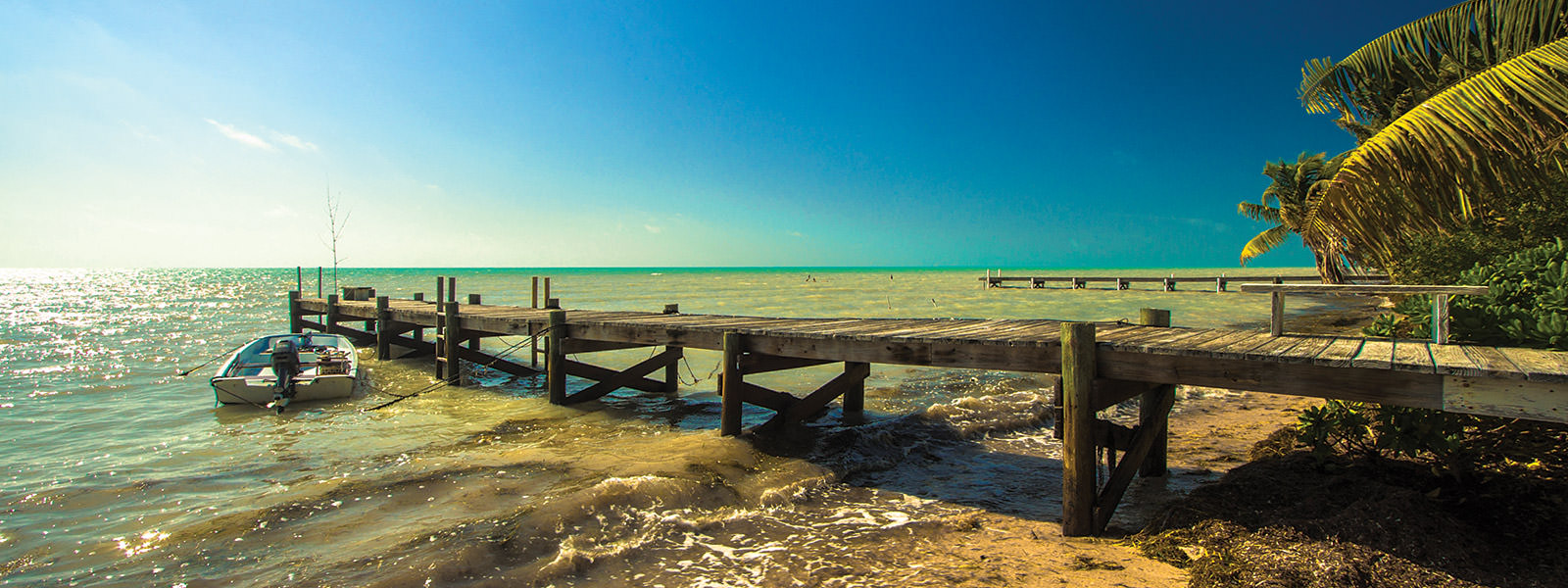A Life Devoted to the Keys: Mimi Stafford

Mimi Stafford spent her teenage years in central Florida before leaving to study marine biology. After college, she and her husband visited the Florida Keys and dove the reefs, deciding then and there that they could never leave. For years, Mimi has worked as a commercial diver and fisher in the lobster, sponge, and stone crab fisheries. She also participated in the tourist industry as a charter and ecotour operator. Today, Mimi supports Florida Keys National Marine Sanctuary by serving as a member of the Sanctuary Advisory Council. This is her Story from the Blue.
The Keys were a magical place when I was little. There weren't many people. My father and I would launch a little skiff not far from where I live now and head to the reef for adventure. We wouldn't see anyone all day long. It was amazing, it was so quiet. Today, there's a significant change.
By the time I returned to the Keys as a young woman in the early 1970s, something was happening with the conchs and they were declining. In the 1980s, my husband and I witnessed a massive die-off of the queen conchs, Bahama sea stars, and Diadema sea urchins. There are many theories about the cause of the declines, but I do not think we have ever fully identified the underlying problems.
We all need to be
part of the solution."
In the 1990s we witnessed the precipitous decline of the corals, especially staghorn and elkhorn and the more delicate species that are so important to the structures of our outer reefs. Sponge populations have also declined. The loss of these corals and sponges changes the entire ecosystem and further exacerbates the overall decline of the reef system.
People are talking about temperature changes and rainfall changes and climate changes, serious issues that we need to focus on. I was on an ecosystem protection working group with the sanctuary for a couple of years and now I represent the general public of the Lower Keys on the Sanctuary Advisory Council. We are going through the preliminary stages of coming up with a new management plan, and when the draft comes out, we will go back and have public meetings again. I really encourage people to come and be a part of it. It's the best way to find a solution that works for everyone.
I think people need to know when they come down here to the Keys that they are really coming to a special spot. Anything they do, even small things like throwing cigarette butts on the ground, contributes to the degradation of our water quality. Think about a better, less impacting, way to explore and experience the Keys and to appreciate what is special. Choose kayaking instead of jet skis. You can jet ski anywhere. Why come down here and jet ski? You miss it all. You scared it all away.
I feel like my children were lucky enough to see the Keys when the marine environment was still healthy. I am so fortunate to have been here through these years and I feel a responsibility to be a part of the recovery. As a child, I couldn't wait to get out there and get underwater because it was so magical. I would love for my grandchildren to see that.


